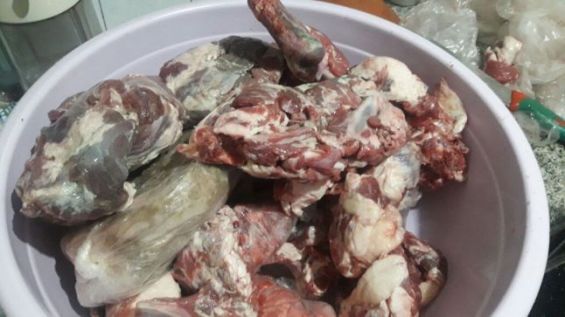Despite the preventive measures taken by the Ministry of Agriculture and the National Office of Food Safety (ONSSA) to eradicate the discoloration of meat during Eid al-Adha in Morocco, the issue is making headlines again.
Yabiladi met a family that experienced the same problem in Casablanca only one day after Eid al-Adha. «Everything looked perfect at the beginning», a woman who bought a sheep from a shop in the city told Yabiladi.
«When we finished the sacrifice (Slaughtering the sheep), the meat looked fresh and edible, however, the day after, I realized that it become rotten», she sadly declared.
«I then rushed to the fridge and found out that the whole mutton was discolored and had a weird smell», she said.
In fact, the family purchased the sheep from a garage located in Derb Chorfa (Casablanca). «I asked him about the ear tag that all sheep should have. He said that once I pay for it he will show it to me. When I bought the sheep, he pulled a bag full of ear tags and gave me one of them that looked nothing like the one that I saw on TV», she argued.
«I am planning to lodge a complaint against the person who sold me the sheep. We paid 2900 dirhams, we want our money back», said the woman who was worried about her family’s health.
For the record, one month before Eid al-Adha, the National Office for Food Safety (ONSSA) identified sheep and goats to be sold for the feast. 3.7 million sheep and goats have been identified and 108,000 registered breeders as part of an action plan. All identified sheep were given ear tags.
The initiative was mainly taken to avoid the discoloration of meat that occurred last year and manage to reach farmers and merchants who sold the affected animals.





 chargement...
chargement...












